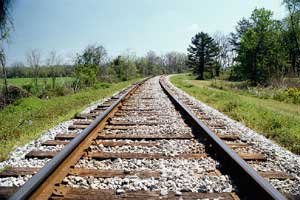A revised environmental impact report for the California
High-Speed Rail Project released last week stated the project
should continue to run through Pacheco Pass.
A revised environmental impact report for the California High-Speed Rail Project released last week stated the project should continue to run through Pacheco Pass.
The California High-Speed Rail Authority released the report following a court judgment stating that the rail authority failed to comply with state environmental law.
The 800-mile California High Speed Rail System, expected to be fully operational by 2020, is slated to have routes from San Diego to Sacramento and to the Bay Area, transporting passengers at speeds of up to 220 mph. A 123-mile stretch from Merced to San Jose would run through the Pacheco Pass with a proposed station in Gilroy. The entire rail project is expected to cost about $45 billion.
The lawsuit from the towns of Menlo Park and Atherton that spurred the new draft environmental report stemmed in part from Union Pacific’s refusal to allow the high-speed rail authority to use its right-of-way.
However, the impact report stated that Pacheco Pass is a better route than the Altamont Pass, as Union Pacific has more rights-of-way along the Altamont, resulting in an increased need for property acquisition.
The report also stated that California’s high-speed rail station should run through downtown Gilroy east of the Union Pacific tracks on a line that is either elevated or at ground level. However, this was a preliminary idea, and high-speed rail officials have discussed other alternatives in recent months such as placing the line east of U.S. 101 or trenching them downtown.
High-speed rail officials say that the new environmental document, which corrects a former report from 2008, does not supersede changes that have occurred within the project process. As a result, other rail line alternatives through the Gilroy area are still on the table.
Gilroy’s City Council has continued to advocate for trenched tracks through downtown Gilroy. If tracks cannot be trenched, they have requested that they would run east of U.S. 101.
Mayor Al Pinheiro said Friday that he had not seen the environmental impact report and could not comment on it. However, he said the cities of Gilroy and Morgan Hill will continue to work together as a united voice for South County regarding the project.
“The City of Gilroy is going to work with the authority to make sure … that it is what we feel is best for Gilroy,” he said.














